Inside the Candy-Colored World of Promising Young Woman's Sweet Revenge
Revenge is wrapped up in a bow (or more precisely, a scrunchie) in writer/director Emerald Fennell’s debut film, Promising Young Woman. After premiering to rave reviews at the Sundance Film Festival in February of this year, the distribution of this movie starring a magnificent Carey Mulligan was put on hold (like so many other things) due to the spread of COVID-19. And just like that, a promising young film was put into a precarious position.
Fortunately, vengeance—at least against the virus—is coming soon. And with it, the reslated release of Promising Young Woman on Christmas Day in select theaters and on-demand in the new year. While quarantine fatigue set in months ago, the anticipation and excitement around this peculiar pastel-hued thriller have not dissipated, which is why it was an absolute delight to speak with Mulligan and co-star Alison Brie about the film this week over Zoom.
Both Brie and Mulligan’s passion and enthusiasm for this creative undertaking and Fennell, in particular, was palpable, as well as the underlying seriousness of this atypical revenge story which challenges the viewer to consider the roles they’ve played in perpetuating, excusing, or even silencing victims of sexual assault. This toxic, pervasive element in our culture (particularly in Hollywood) had a reckoning with the emergence of the MeToo movement in 2017. But instead of a viral infection, the plague of assault is far more insidious and difficult to cure, socially speaking. With that in mind, it is not lost on the viewer that Mulligan’s character, Cassandra, was pursuing a medical degree before her life was turned upside down. Her approach, while at times curative, focuses more on the eradication.
For better or worse, revenge is a tale as old as time. Without revealing any spoilers, both Mulligan and Brie, two self-described "nice gals,” shared what it was like to play against type, confront inner demons, and bring Fennell’s cleverly constructed brand of candy-colored chaos to life in a pre-pandemic world.
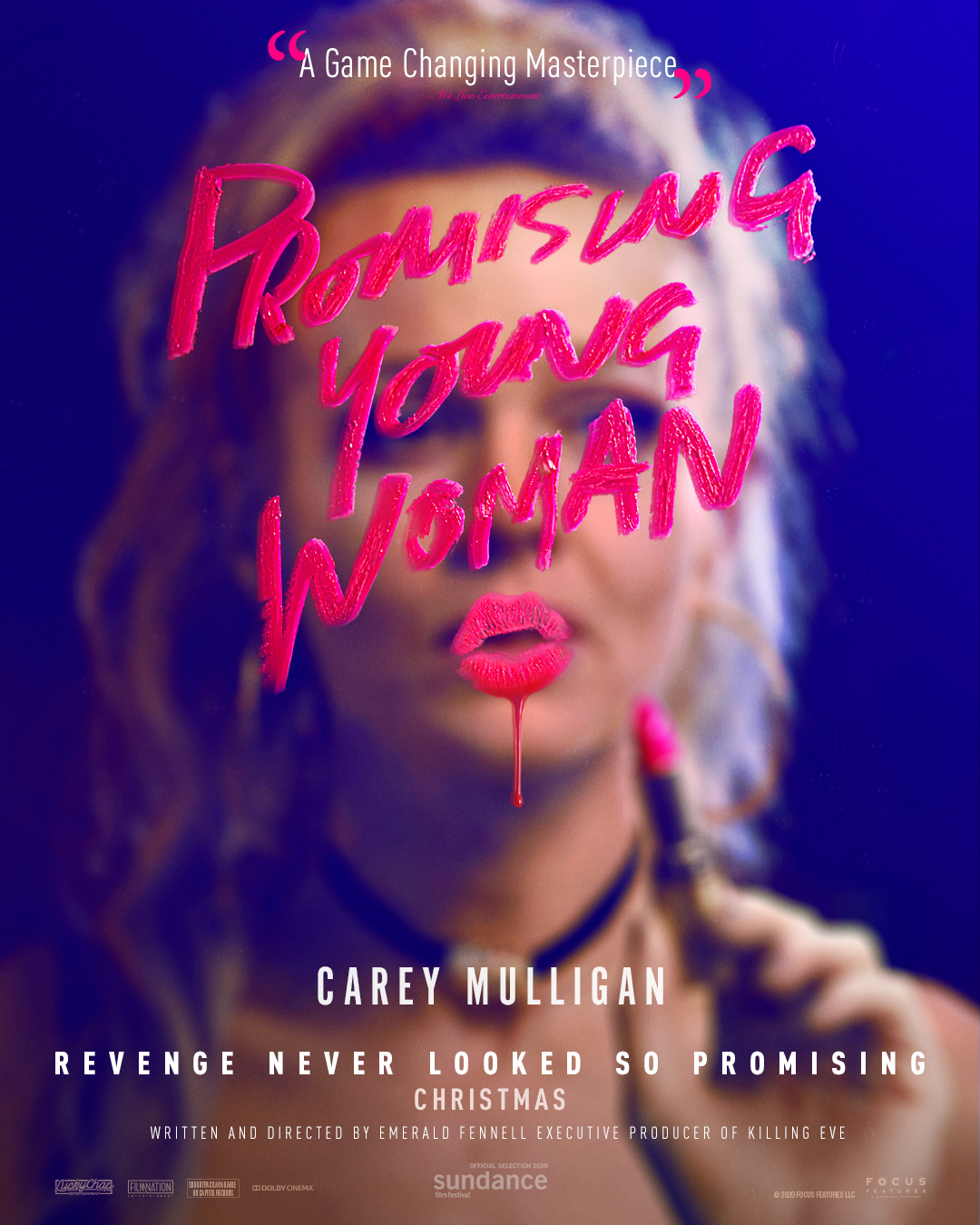
Given that this has had so much buzz since Sundance which feels like forever ago, can you tell me about your first impressions of the script?
CM: I think I read the script in January of 2019, and I hadn’t read anything like it. It felt completely new. I quickly arranged to meet Emerald, and in the meantime, she sent me a playlist of music that had "Toxic” twice in two different ways, Paris Hilton's "Stars are Blind,” and "Boys,” by Charli XCX, and it also had "Take My Breath Away” from Top Gun, which was such a great reference. After about five minutes I said that I wanted to do the film just based on how brilliant the script was and the world that she was building around it. I just instinctively knew that Emerald would do something really great and I wanted to be involved in it.
AB: I loved working with Emerald. What a powerhouse. She has such a strong point of view, and that carried along from reading the script. It jumped off the page. I love the soundtrack. I love that there are glitter and glitz to the movie. I love the dark pervasive sense of humor. I think that she has made a brilliant piece of work in that the packaging is sort of misleading. She wrapped up this commentary on a very dark subject in this bubble-gum pink nail polish wrapper with glitter on it, so you’re like, "I wanna open it, I wanna watch it, I wanna live in it.” Then you come out on the other side and you’re like, "Wait, whoa—let’s talk about this, this is having an impact on me in a way I didn’t expect.” It’s a beautiful hat trick.
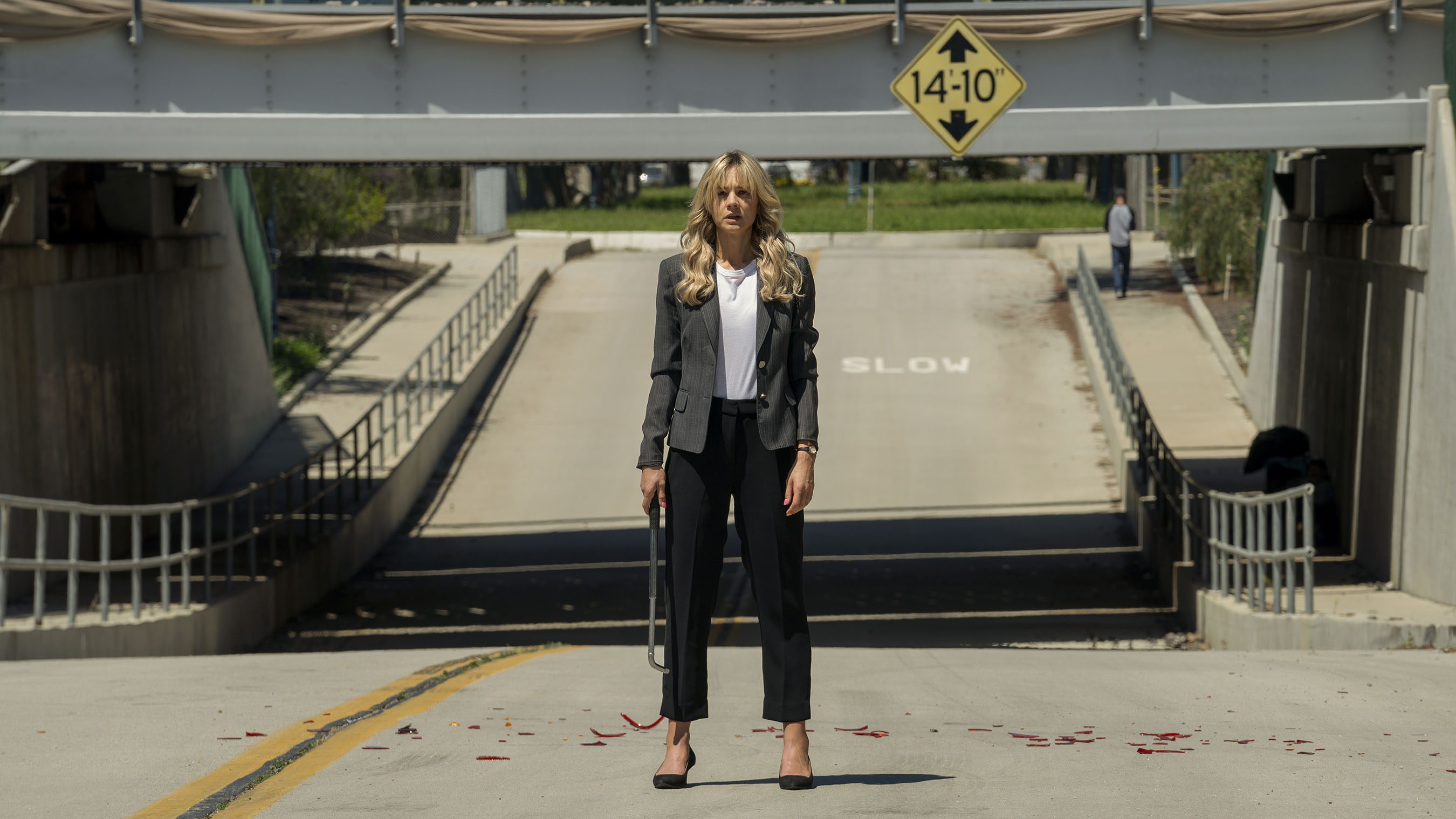
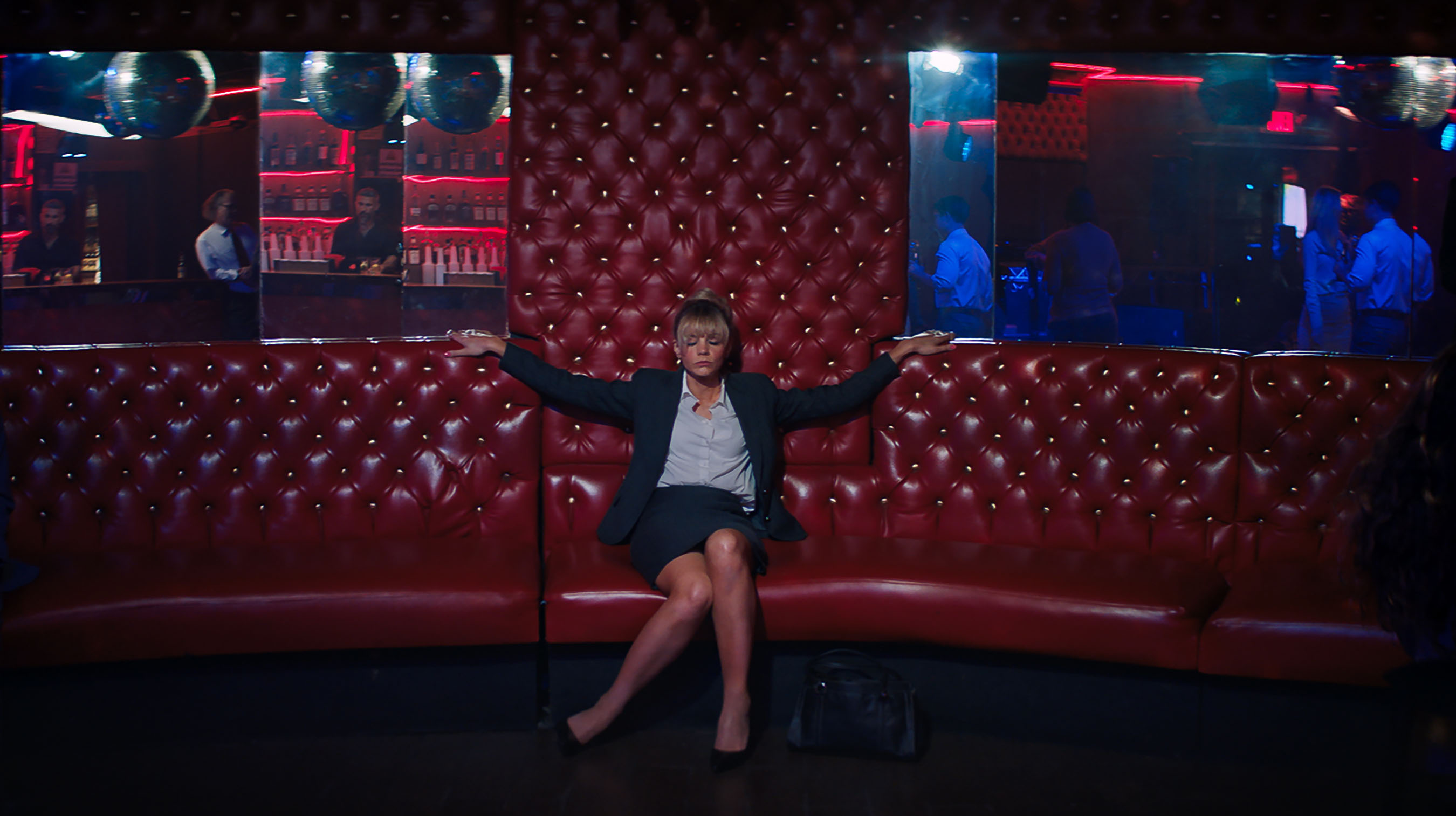
What about the role of Cassie, in particular? How did you get into that headspace?
CM: By imagining Cassie as an avenging angel, which certainly played into the cinematography and design of the film. I really started with Emerald to figure out why she behaved the way that she did, who [her friend] was, and what that relationship meant to her. Because I think her actions are perceived as someone who is full of hate when it’s really the opposite. I think Cassie is full of love and loyalty. All of this is a misguided act of really deep love for her friend, so figuring out what her past relationship was and what she was like before all of this happened was really key. And lots of that came from talking with Emerald.
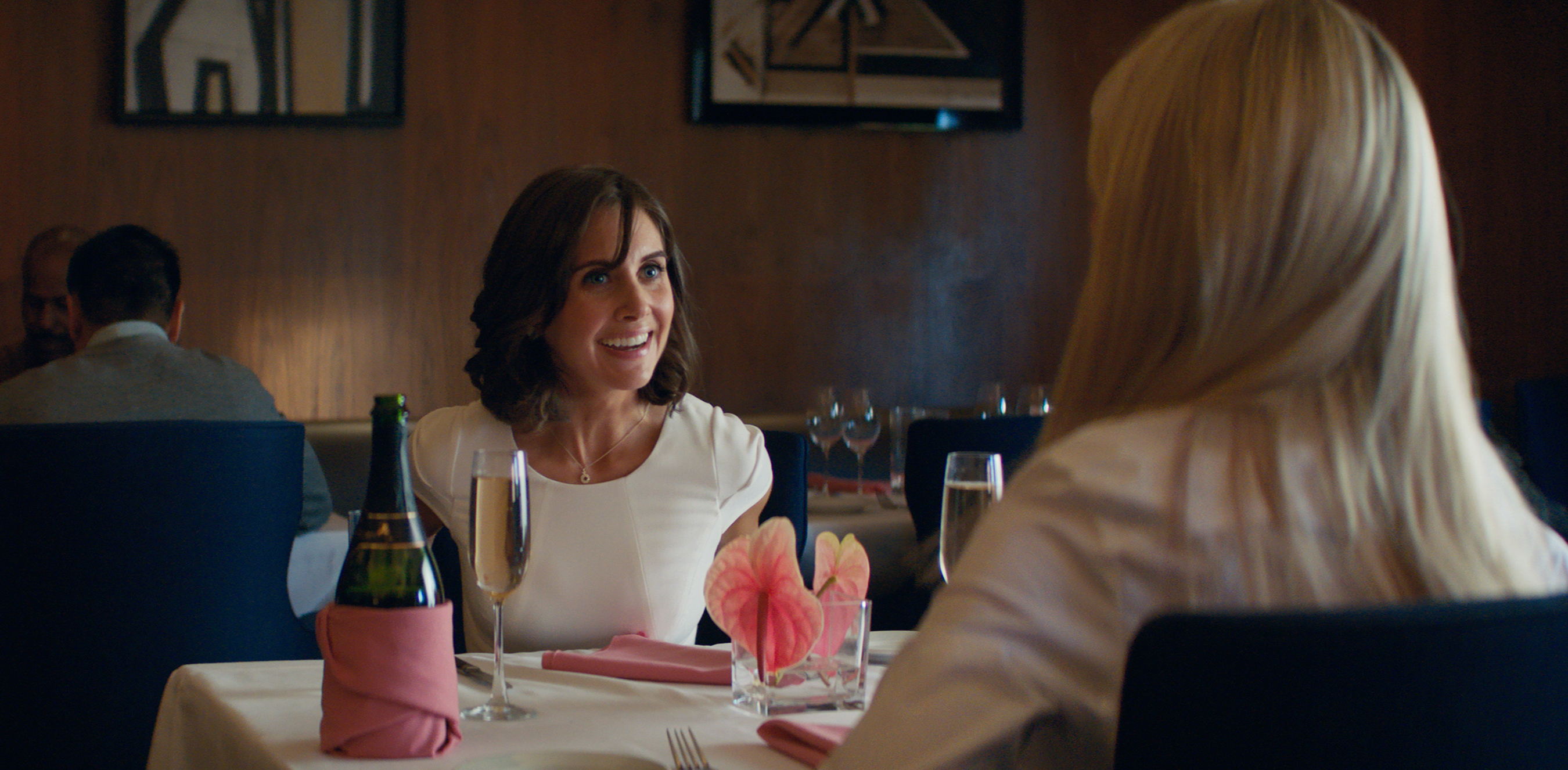
Onto Madison Macphee. Alison, I feel like you’re really playing against type. What was the backstory that you imagined for her?
AB: I talked to Emerald at length about what Madison’s experience was like at school and what her relationship with Cassie would have been like (they were probably pretty close friends if not pseudo-frenemies), certainly very much in the same social circle, hanging out at all the same events. There are key things that are written into the script like Madison talking about "these kinds of things” happening "all the time” and to me, that was an indication that Madison herself had likely been victimized in some way, and the way that she is choosing to deal with that is obviously the polar opposite of Cassie. It’s what makes Madison an exciting character to play. She’s actually very complex and a representation of something that’s equally nuanced. When we talk about the topic of consent, Madison is this representation of female complicity in terms of victim-blaming, but also she is herself a victim of this type of societal behavior. It’s an interesting character study of a different type of coping mechanism, and her coping mechanism is it’s funny; it was all consensual.
I do hope that people take a second look. It would be such a shame—it is very easy to write off Madison as just being a bitch or something. But everything in this movie is more complicated than it seems, and I think she is definitely a part of that.
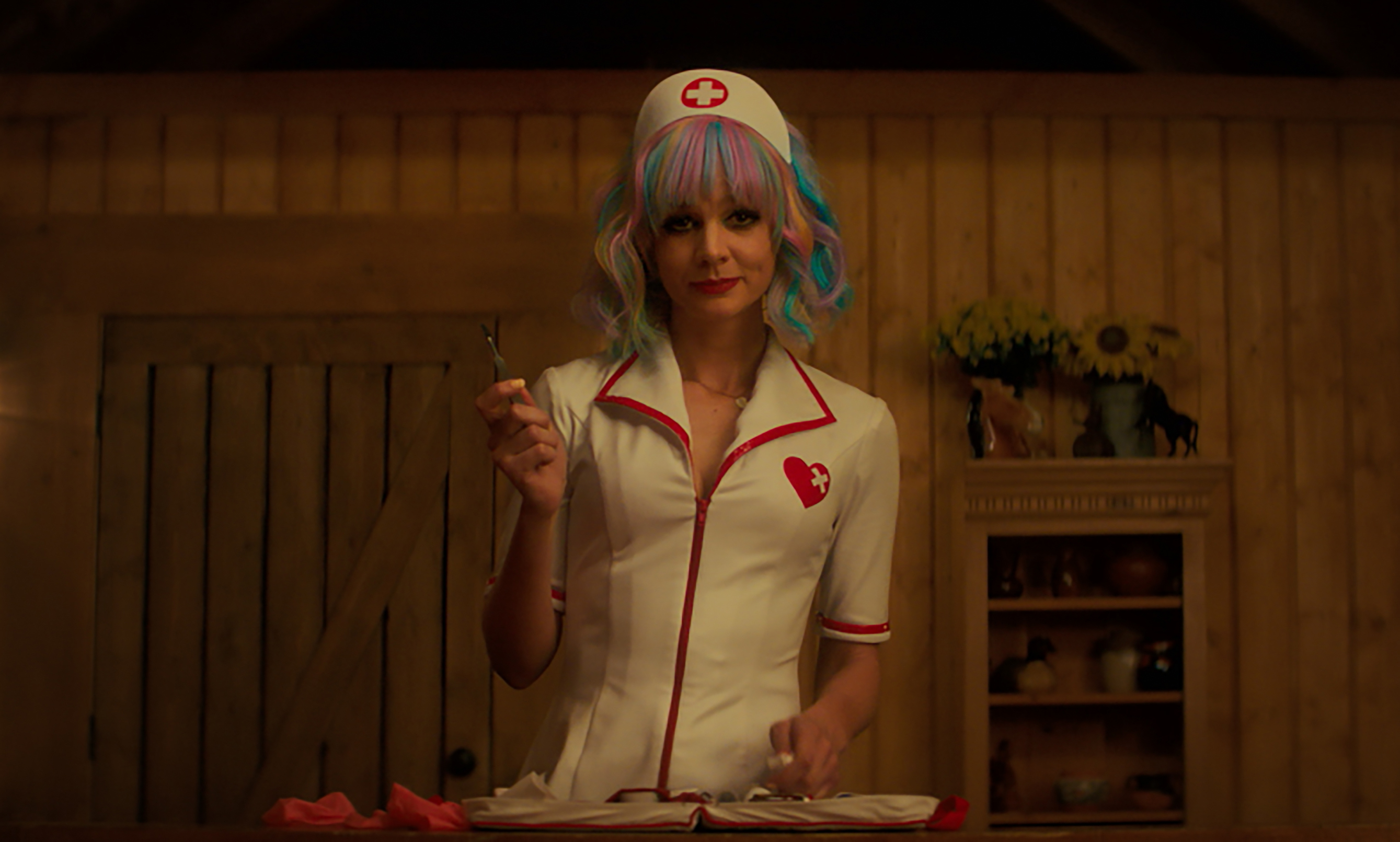
What about the presentation of your characters? Did you have a favorite costume or scene?
CM: I loved all of it! There was a pair of pink jeans that I wore for the love montage Paris Hilton pharmacy scene that I was really into. I got kind of weirdly into pink clothes when I was filming. I bought a pink hoodie and a pink dress when I was shooting in L.A. I really enjoyed having a multicolored manicure way more than I thought I would. The nails were so fun. And the nurse’s costume was amazing. The hair and makeup for that were like full-blown armor. They were all so well thought through by Nancy Steiner, our brilliant costume designer. The nurse’s costume was definitely the most fun and something I would never in a million years wear again.
AB: When you bring up Madison’s costumes, I love that it’s two scenes. We see a total deconstruction of this woman. Even at the lunch she comes in looking perfect, and by the end of the lunch, her lips are wine-stained; she is sweaty. I believe this was an Emerald direction of "We gotta wine up the lips. We gotta give you that stain that we all are familiar with.”
You begin to see the unraveling even with her first encounter with Cassie, and then by the middle of the movie when you see her again, she’s in jeans and a shirt. It’s the most casual that that woman gets—in her Tory Burch flats. As I say that, I’m wearing Tory Burch flats. Visually, you get to see the impact that Cassie has had on this woman in a very short amount of time.
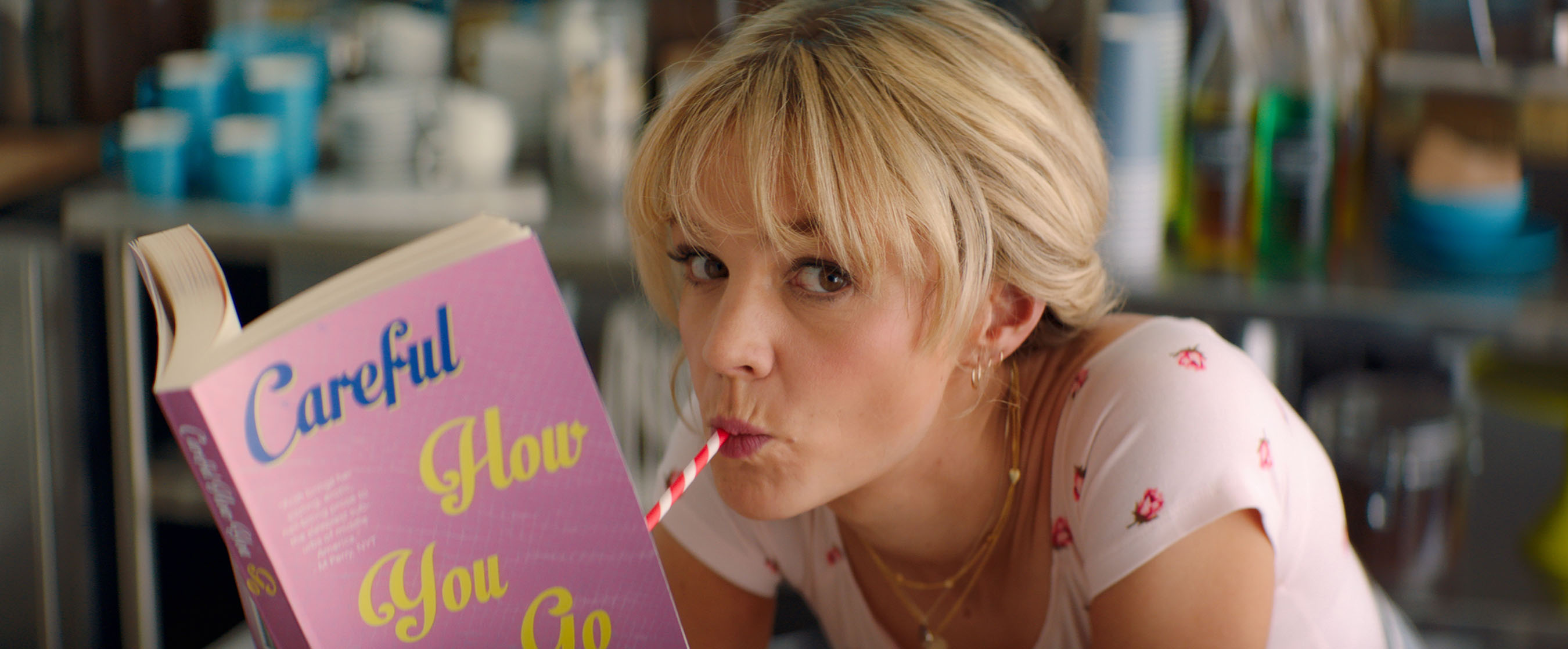
Thinking about the pinks, in particular, I love that this is such a poppy feminine treatment for a thriller film. I noticed that Cassie tends to wear a lot of pinks when she is feeling good, secure, happy—like the pharmacy scene—even when she’s having a romantic moment and getting more comfortable in that relationship. When she’s more strategic and contemplative she’s wearing these blues… It’s interesting to hear that the pink resonated with you as well.
CM: Yeah, I did. And it was all very intentional on Emerald and Nancy’s part to have those color associations. It was also very important to emerald that everything felt very tactical and approachable. There were soft fuzzy sweaters and lots of softness around it. It didn’t feel… It was approachable because she’s very much a character that is hiding in plain sight. Part of the reason that she looks the way she does (and I don’t think she looked anything like that when she was in college) is that the guys don’t recognize her at all. It's sort of the idea that you don’t suspect someone who has a multicolored candy-floss manicure of being capable of destroying your life. All of that is deliberate on her part.

I love the use of those bright, tactical things as iconography, whether it’s the manicure close-up in one of the final scenes, but also the scrunchie that Cassie secures her notebook with. That felt almost sweet, and there is hurt and love behind this revenge story that I don’t think you tend to see in the more typical male-driven thriller.
CM: When Cassie throws away the notebook, the moment when she decides to reform, she throws away the book but keeps the scrunchie… It sounds like such a ridiculous sentence, but the scrunchie had real emotional significance for me when I was filming because I always felt that was a tie to her friend.
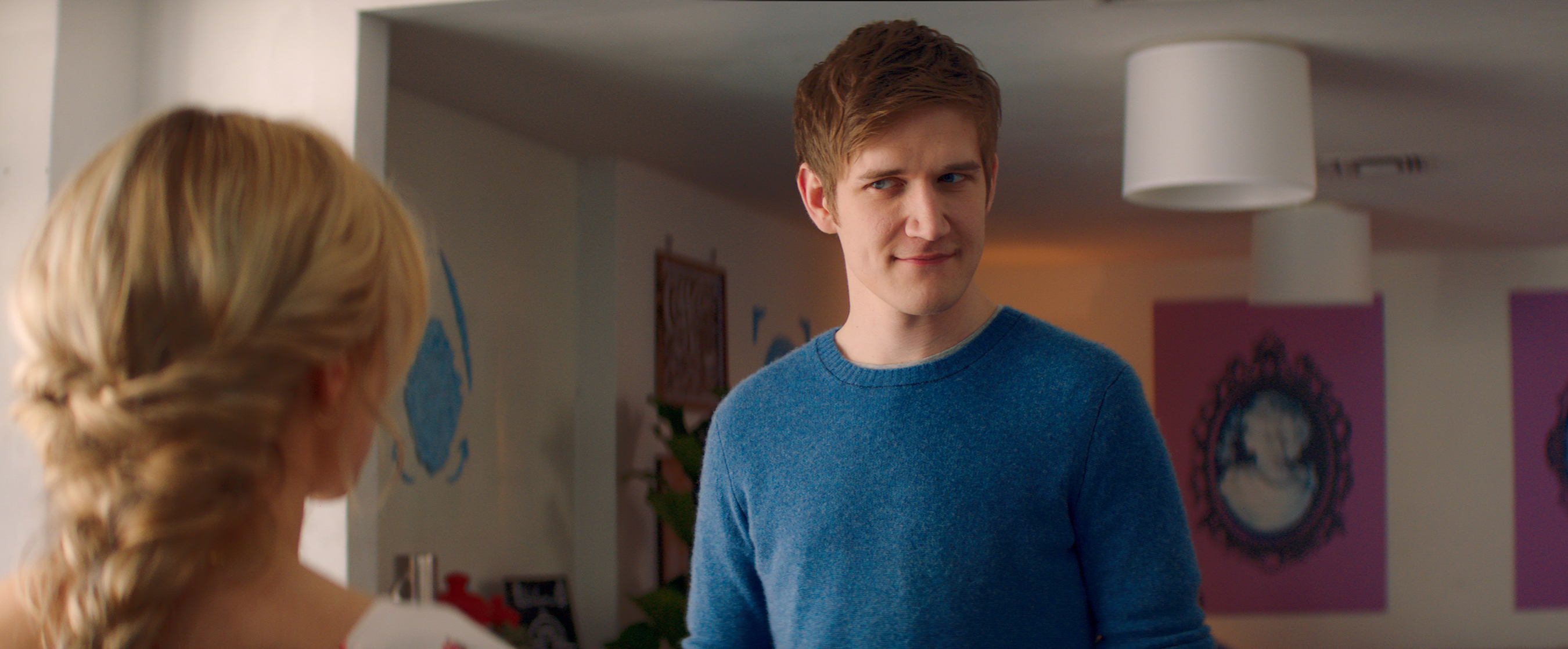
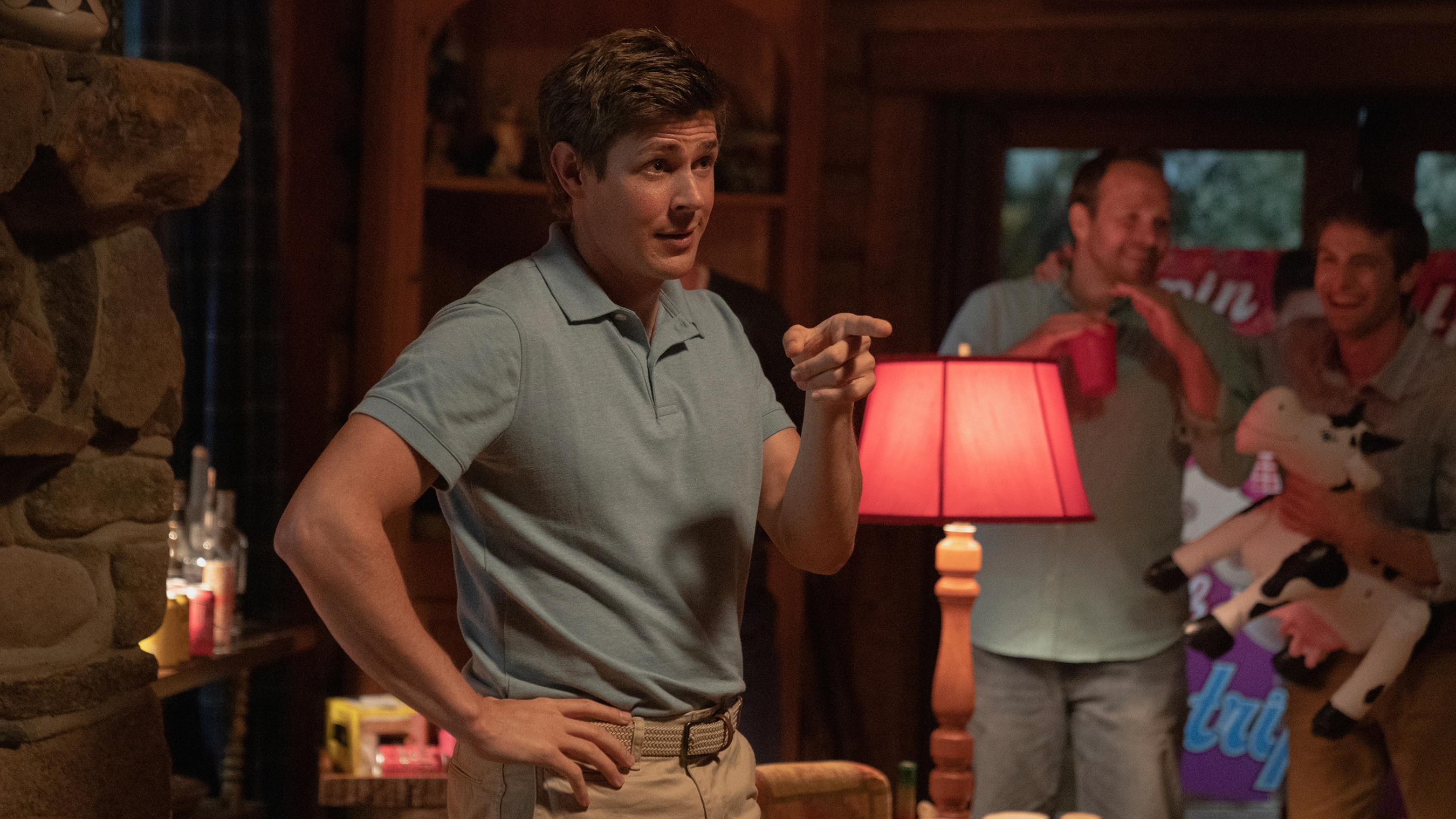
I appreciate how Emerald cast all "nice” actors included yourself. Can you talk to me about playing against type for you and how that might be an important thing to consider for the audience when watching the film?
CM: I thought it was such clever casting to cast all these guys that we have such warm association with. Even Emerald and I, when Adam [Brody] was in, were geeking out about The O.C. We see these people on-screen and really want them to be everything we hope, and Emerald even said to Adam on his first day of shooting when we shot the scene in the apartment, "You are the hero of this romantic comedy and you are about to meet the love of your life.” It wasn’t just in the casting but also in the way she directed everyone. None of these characters come in with these menacing ideas. They’re people who believe they’re good until they realize that they aren’t. Or that they at least have behaved in a way that is not.
AB: It’s about the necessity for a societal mental shift. This movie and every character in this movie is pretty complicated. It’s not black and white. Certain things are not even as extreme as you expect them to be. Emerald casts all pretty much comedic actors that people know and love—a bunch of lovable goofballs—that even prompts the discussion more. Because if you cast a bunch of really villainous-looking people and everyone who is playing it in an evil villain fashion, then there is really no question. "Oh, that’s a bad person.” It is an examination of people thinking that they are good people but then committing acts that are, you know, bad. Non-consensual. The conversation itself is very complicated. It’s a broader and deeper and more complicated issue than people are giving it credit for.
CM: Everybody brought such richness to their roles. Alison coming in on the first day—the first thing that we filmed in the entire movie was that scene in the restaurant—was just unbelievable. [She is] someone who had three days of shooting on the whole film and came in and absolutely destroyed in the first scene on the first day of filming. Emerald and I were both like, "Wow, she’s a fucking pro, Alison Brie!” It’s this idea of people playing totally unexpected roles that continue to subvert our expectations throughout the film.
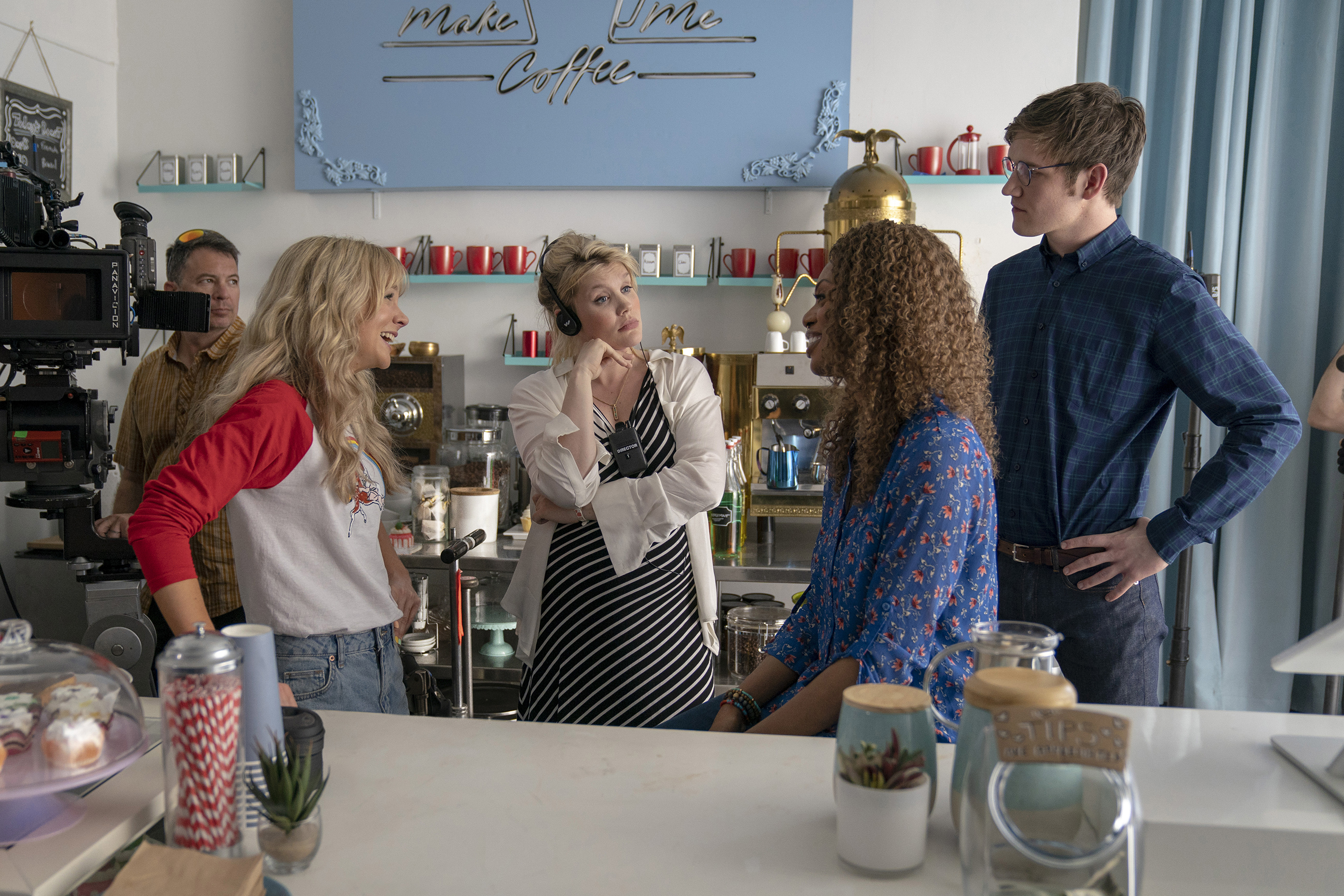
Up Next: Unraveling Fashion, Beauty, and Trauma in I May Destroy You
Drew Elovitz is originally from Pittsburgh, Pennsylvania, but has spent the last decade living and working in New York City. She earned a master's degree in media and popular culture from New York University, then began her career on the internet as the Twitter voice of Barbie. She worked previously at Who What Wear as the director of content strategy and also spent several years leading the social media teams at Teen Vogue and Entertainment Weekly. You'll find her byline on the site around topics such as celebrity fashion, must-have basics, beauty favorites (particularly nail polish), and wellness tips and tricks.